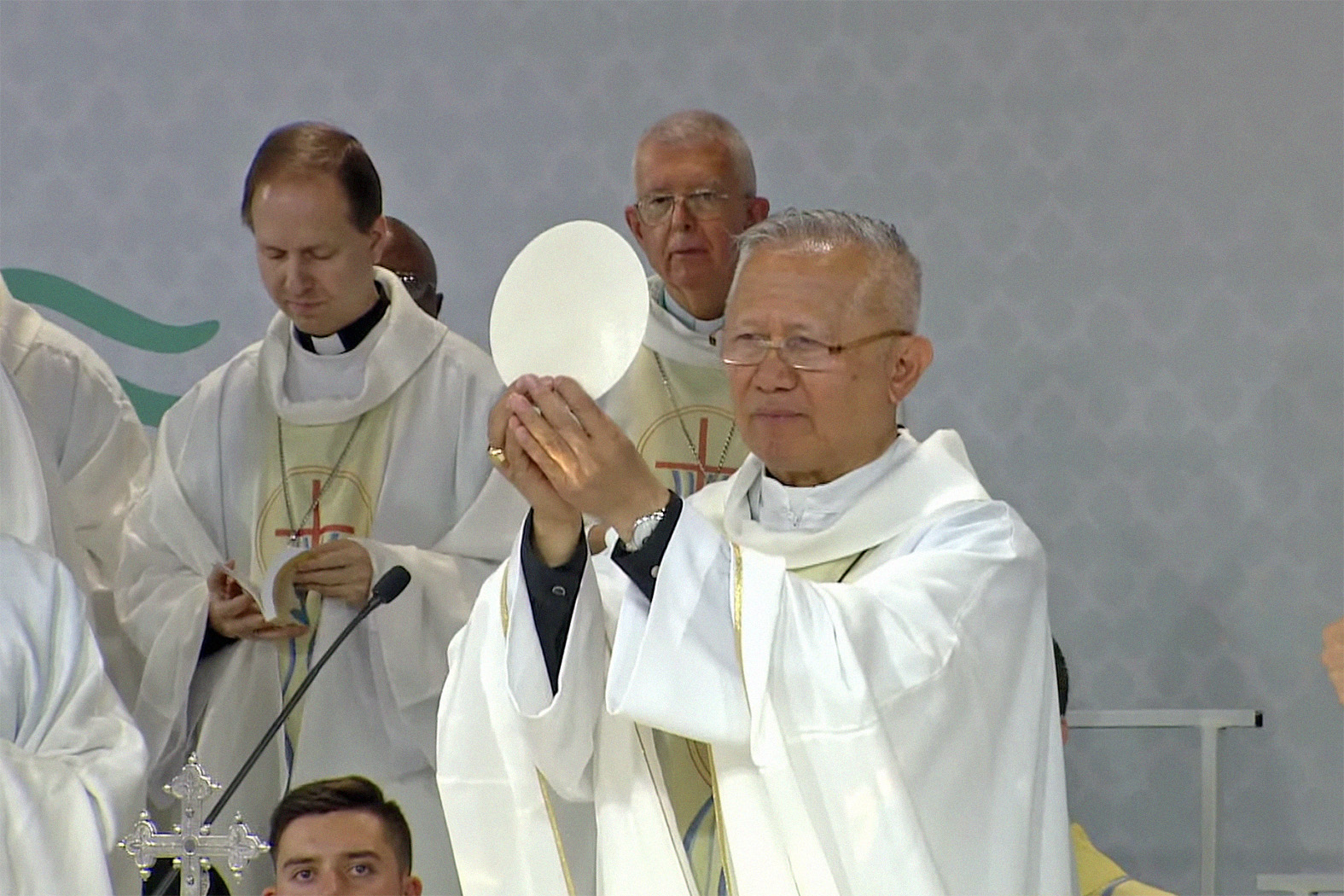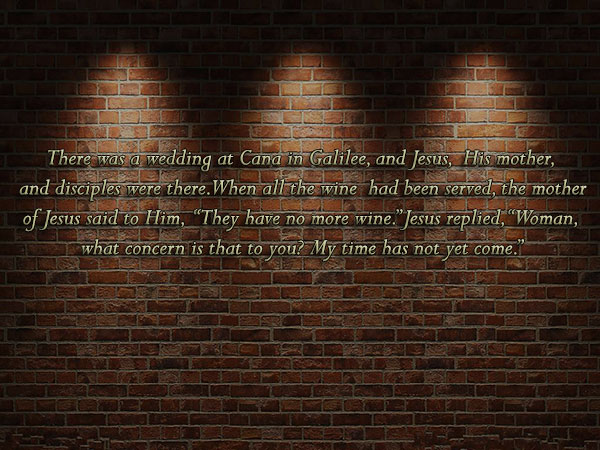LIKE FR. CORNELIUS Murmu (see February 23 Issue), Fr. Ashesh Marecellinus Dio is a Bangladeshi. And like most foreign priests that have celebrated Mass in the Holy Spirit Parish (except native speakers from America and Australia), he received flak for being “hard to understand.”
I was at the parish office when a woman was complaining to volunteer Catechist Analyn Perez that Fr. Ashesh should not be allowed to say Mass anymore because she and her mother could not understand a word of his homily and so their going to Mass was a waste of time. She went to the extent of proclaiming that she was “speaking on behalf of the parishioners who were at that same Mass that particular Sunday.”
Ate Analyn took it all in stride and told the woman that she will relay the message to the PPC. I wanted to butt in but controlled myself because I was no longer an employee of the church. I would tell Ate Analyn later that she could have told the woman that the latter could have written a formal complaint and dropped it in the suggestion box in the church. We signed and sighed at that lost opportunity.
Inwardly, I promised to look into the matter. And no sooner had I prayed for a sign than I was scheduled to serve one Sunday later (April 12) at his Mass. I served with Kuya Noel, a friend who is responsible for my being a PREX addict and entry into the Eucharistic ministry of holy communion. He is wont to sharing with me his thoughts when the priest’s homily or his manner of delivery touches him.
The following was Fr. Ashesh’ homily:
“Amazing events happened in our diocese in the (Jubilee) year 2000. A crucifix procession was being conducted and one night, the master of one house asked to keep the crucifix. He could only afford to buy biscuits (to the British-trained; “cookies” to the Americanized) for the crucifix bearers. He wanted to buy more food but could not because of little money. There was a big crowd that night. After the prayer service and while the people were singing, his household members distributed the biscuits. The house master was surprised that, after all the people were fed, there was still a lot of biscuits left.
“At another occasion, there was an old Protestant who was sick. When he heard that the Jubilee crucifix was making its rounds among families in their area, he requested for it and his request was granted, the crucifix was placed in his room. That night, he heard a voice asking for water. He was not well enough to get up but he rose and looked about in his room for where the voice was coming from. There was no one. So he went back to bed. Again, he heard the voice and its entreaty for a drink. Immediately, Jesus’ words on the cross came to his mind. He poured water into a glass and put the glass on the table in front of the crucifix. In the morning, he felt better and got up without an effort. When he looked at the glass, it was empty.”
Then Fr. Ashesh segued into the apostle Thomas’ experience of Jesus. Thomas is well known to us for being a doubter, a man who does not believe easily. Behind his doubt, however, is another aspect of his character. He is practical and unique and not easily swayed by stories from other people, even his fellow apostles. He was his own man. He needed to know more, to experience more. As he has said, “Unless I see… and touch… and place my hands… I will not believe.” The apostles’ witness did not satisfy his mind. He had to speak to Jesus, see Him with his own eyes, touch Him with his hands. The desire to see Jesus, therefore, there. Fr. Ashesh said this was all right. We, too, need a personal experience of Jesus.
Fr. Ashesh exhorted that we should not forget the context at that time. People were afraid of priests and religious leaders. They have seen how Jesus was tortured and crucified. They saw His suffering and death. When Jesus was captured, they fled and abandoned Him. (Peter even denied Him three times, so great was their fear.)
They knew He was dead but did not have any idea of the resurrection. Nobody in those times rose and appeared to any one. It was not easy to believe that Jesus was risen, alive. They had seen Jesus do many miracles, including raising Lazarus, heard him talk about His own death and resurrection, but they were not paying much attention or could not really understand. Jesus scolded them many times for their “little faith.” They were poor only in believing but also economically and socially. They were poor, powerless and marginalized. They were fishers, tax collectors.
Therefore, in such fearful and poor situation, when the disciples saw Jesus, they became suddenly joyful. They were encouraged and strengthened. But Thomas missed that and was deprived. When they shared their experience, his feeling was empty, without emotion. He was still in a fearful, poor situation. Thomas understood the disciples’ joy even when he did not share it. Seeing them joyful, he had a desire, a longing to have that experience, to see Jesus alive. And he lucked out. He had his chance at personally meeting the Master in the flesh. And the rest is resurrection redux.
Fr. Ashesh’s parting shot was, “Dear brothers, one point to reflect on is Thomas had the desire to see Jesus’ wounds and nail marks. Do we see those wounds, the suffering in our world, in our society, in our neighbors, in our lives? What do we do about them, what can we do?
“East is where the sun rises. Easter is resurrection. Rising from the dead to life again. When the sun rises, so does a new day, a new life. May Easter enlighten us with a new day, a new life from and in Jesus.”
My heart went out to that woman, her mother and the parishioners she was speaking on behalf of. If they really missed out on the profound reflection Fr. Ashesh gave the gospel, Thomas was better off doubting only because he missed the encounter. He missed the message because he was not there. The woman and her companions were there, they saw and heard but were blinded and hearing impaired by a preconceived preference, any medium but a Bangladeshi purveyor of gibberish.
Kuya Noel’s comment translated to “Wow!” and I wondered if that was better than the reported applause the congregation gave the same gibberish the Saturday night Mass before Sunday’s.
The multiplication of the biscuits awed one man. The sick Protestant neither doubted nor griped. He simply asked for the cross and was rewarded with wellness.












